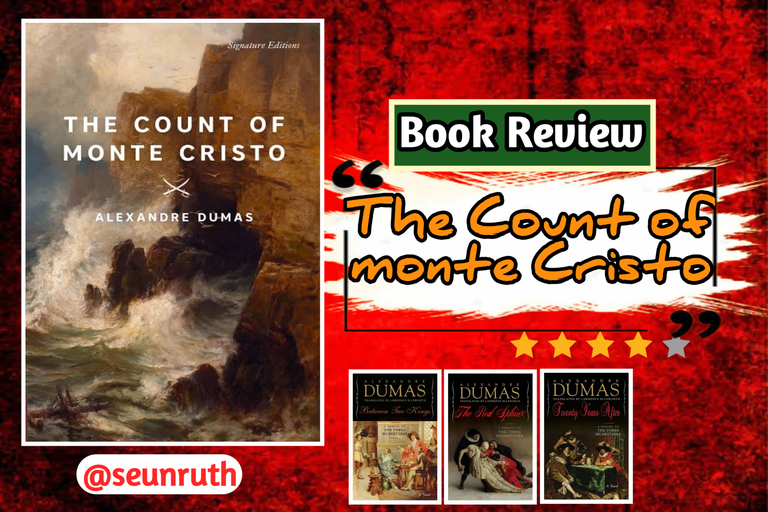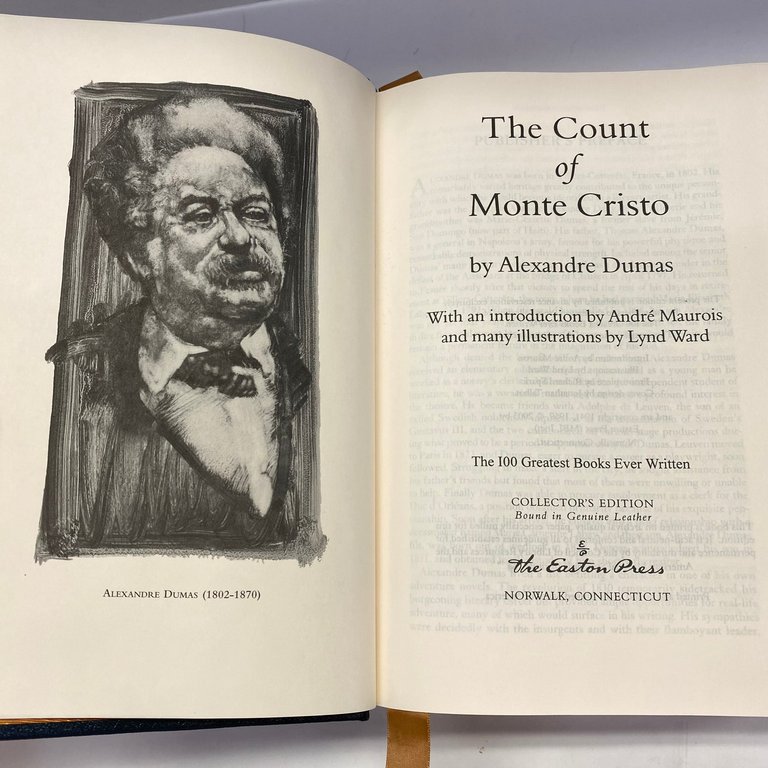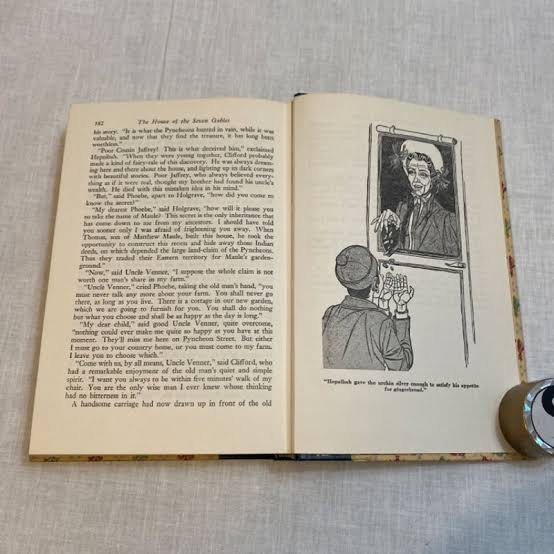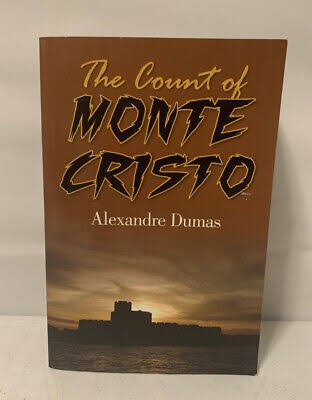Book Review: The Count of Monte Cristo by Alexandre Dumas

Picture this: I’m leaning back in my chair, coffee in hand, looking right at you and trying to explain why this book still sits heavy in my chest even years after I first read it.
We start with Edmond Dantès, a young sailor who’s practically glowing with life. He’s got everything — the love of his beautiful fiancée, Mercédès, the promise of becoming captain of his own ship, and a heart that trusts too easily. That’s the first thing that stung me: Dantès starts out too good, the kind of pure-hearted person you just know the world is going to chew up.
And chew him up it does.

One of the most frustrating early betrayals I have ever read is when Edmond is framed as a traitor by men he viewed as friends (or at least meaningless acquaintances). The motives? Ugly, pure and simple human ugliness, jealousy, greed and fear. Danglars, who envies his profession; Fernand, who is jealous of Merczdès; and Caderousse, who is a mere weakling and accomplice. They fake a letter, plant evidence and before you can even comprehend the callousness Edmond is chained, tossed into a political morass he knows nothing about, and then dumped into the Chateau d If, a jail designed to break men.
And there the first blow to the stomach hits. One day he is getting a wedding ready, the next day he is looking at stone walls and wondering how it all went so wrong so soon.
It is in the prison chapters that Dumas takes his foot off the gas pedal, and I mean ploddingly slow. Yet, they are hypnotizing.
Edmond festers away, becoming bitter and desperate and nearly insane, over the years. I recall being claustrophobic when reading those scenes, as though I could smell the damp, and I could feel the walls closing in. Then he encounters Abb Faria, an older prisoner who takes him in as a student, friend and father figure.
It is Faria who transforms everything. He educates Edmond about languages, history, science, and most significant of all, strategy. He also informs him of a treasure which is buried somewhere on the island of Monte Cristo- a treasure that can not be imagined. The friendship between the two men is so emotional, it creeps upon you. It is one of those little pockets of sun in an otherwise dark and cruel world.

When Faria dies (and I swear, I had to put the book down for a moment here), Edmond uses his mentor’s death as a way to escape, switching places with the corpse and being thrown into the sea in a burial sack. That moment, when he bursts from the bag and gulps down his first breath of freedom in over a decade, I could feel it in my own lungs.
But the Edmond who comes out of the ocean isn’t the same man who went in.
The Dantes that comes out of prison is more brilliant, more cold and frighteningly patient. He discovers the treasure, changes his identity to the enigmatic and ridiculously wealthy Count of Monte Cristo, and starts spinning his web of vengeance.
This is where the book begins to feel like a game of chess but one where the pieces are not aware of being moved about. The Count is a mysterious, charming, and impossibly powerful man who infiltrates Parisian society. And one after another, he goes after people who wronged him.
Danglars, banker now--he is his own victim, because he plays his greed to the point where it eats him up.
Fernand, once a respected wealthy man-the Count dissects his history until he is ruined.
Caderousse--he is warped in his own self-interest and seals his fate accordingly.
And here is the thing: the revenge is not fast or graceful. It is mechanical, at times brutal, and even on some occasions it did not sit well with me. It was at that time that I saw that Dumas was not only writing about justice. He was writing about what occurs when you devote your life to getting the scales to balance - and what this quest can do to you.
Despite its scheming and great disguises, The Count of Monte Cristo is very human. Since buried within all that revenge is the realization that revenge does not heal- revenge gapes.
The most stomach-churning scenes are when Edmond witnesses the collateral damage his plans bring about the innocent that happens to be in the crossfire. Few people perceive the man behind the mask with one of them being Haydee, the young Greek slave that he liberates and who becomes his silent companion.And Mercadies, oh, Mercadies. That meeting years later when she sees him even after the change is heartbreaking. Love exists, but it is a love that has been battered by loss and excess time.

The last three images was gotten from web:
Image 1
Image 2
Image 3

View or trade
LOHtokens.@seunruth, You have received 1.0000 LOH for posting to Ladies of Hive.
We believe that you should be rewarded for the time and effort spent in creating articles. The goal is to encourage token holders to accumulate and hodl LOH tokens over a long period of time.
Thanks LOH 🌹
Your review has really drawn me back into the feelings i had in reading through this masterpiece I found the description of how Edmond changed very effective. I particularly liked that you emphasized on the burden of vengeance and its price. It refreshed my memory as to why this story is so powerful